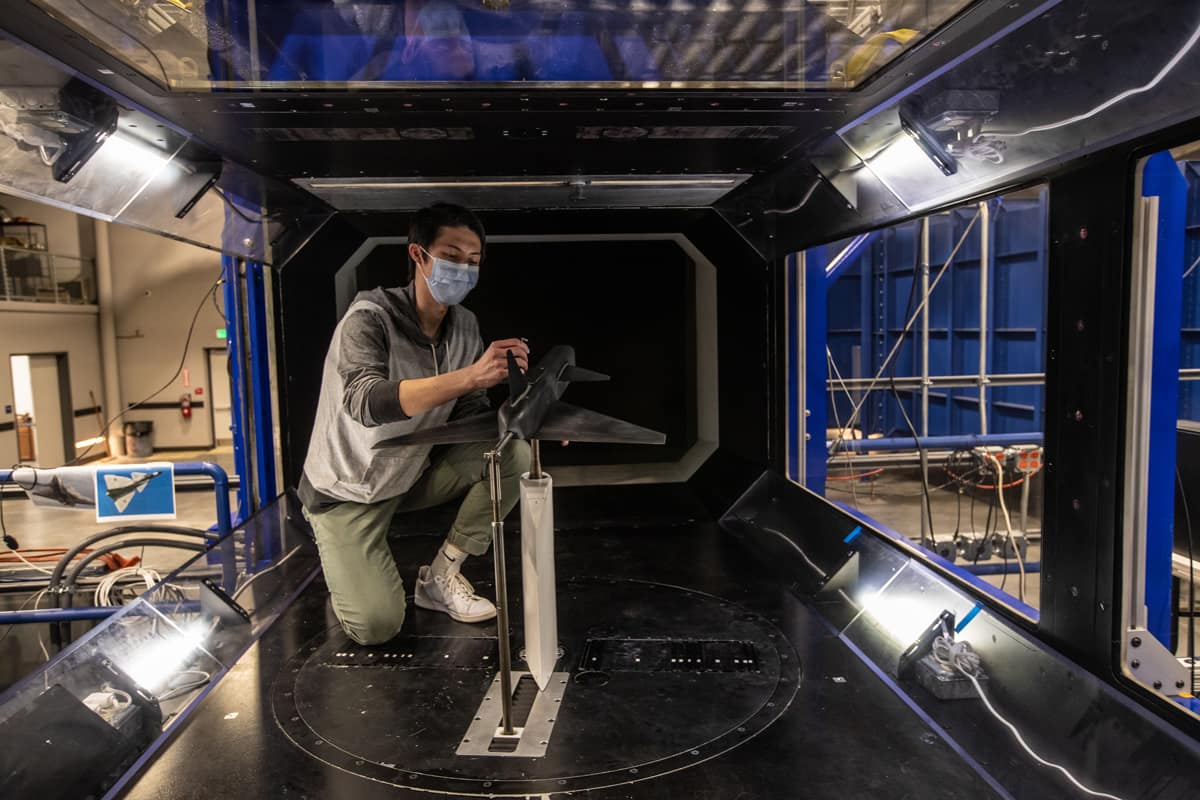Nicholas Zhu Awarded Vertical Flight Foundation Scholarship

Aerospace Engineering Ph.D. student Nicholas Zhu, who is conducting research on experimental aerodynamics in Embry-Riddle’s subsonic wind tunnel, was awarded a Vertical Flight Foundation Scholarship.
“Receiving this scholarship reaffirms the research that we've been conducting at the MicaPlex wind tunnel,” said Zhu.
The prestigious scholarship was given to 22 of the world’s most talented engineering students interested in vertical flight.
“It is an extremely competitive process,” said Dr. J. Gordon Leishman, a distinguished professor in the Aerospace Engineering Department at Embry-Riddle’s Daytona Beach Campus.
The Vertical Flight Foundation is the philanthropic arm of the Vertical Flight Society, which was founded as the American Helicopter Society and is the global nonprofit society for engineers, scientists and others working on vertical flight technology. Zhu received the foundation’s Ed Austin Scholarship, honoring the contributions and memory of the late U.S. Army Aviation aerospace engineer. Doctorate scholarship winners each receive $5,000.
“Since 1977, our Vertical Flight Foundation Scholarships have helped inspire generations of students to pursue careers in vertical flight, with many now holding leadership positions in industry, academia and government, with more than 600 scholarships awarded to date,” said VFS Executive Director Mike Hirschberg.
This year’s awardees will be recognized at the VFS Grand Awards Breakfast, which will take place on May 12, at the Vertical Flight Society's 78th Annual Forum & Technology Display in Fort Worth, Texas.
Zhu’s research aims to better understand and eventually model ship aerodynamics. Navy ships, which are usually not streamlined, generate unsteadiness and turbulent airflow, he said, making rotorcraft take-offs and landings extremely challenging on windy days.
Zhu credited Leishman, associate professor Ebenezer P. Gnanamanickam and Dr. Zheng Zhang for their guidance and support.
“This award has certainly motivated me to continue pursuing rotorcraft-related research,” said Zhu, also a Science, Mathematics, and Research for Transformation (SMART) scholar. “I am very excited about the ship/helicopter dynamic interface research that we have planned for the next few years.”

 Melanie Stawicki Azam
Melanie Stawicki Azam